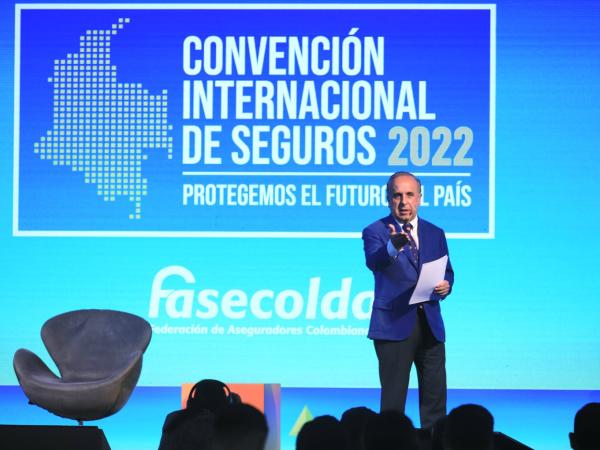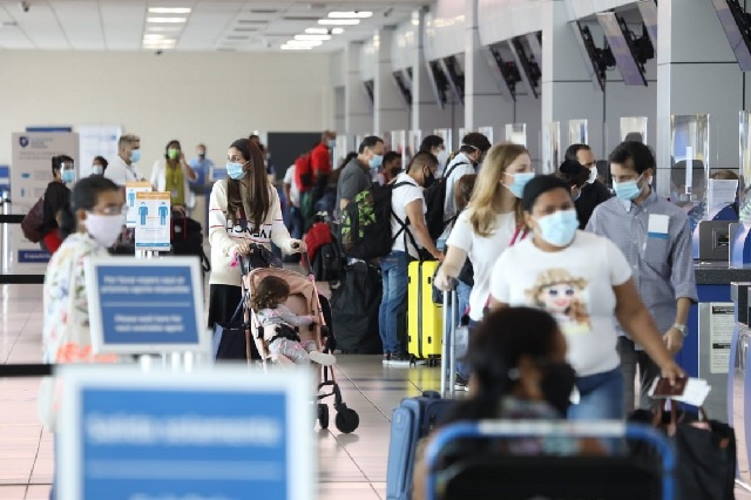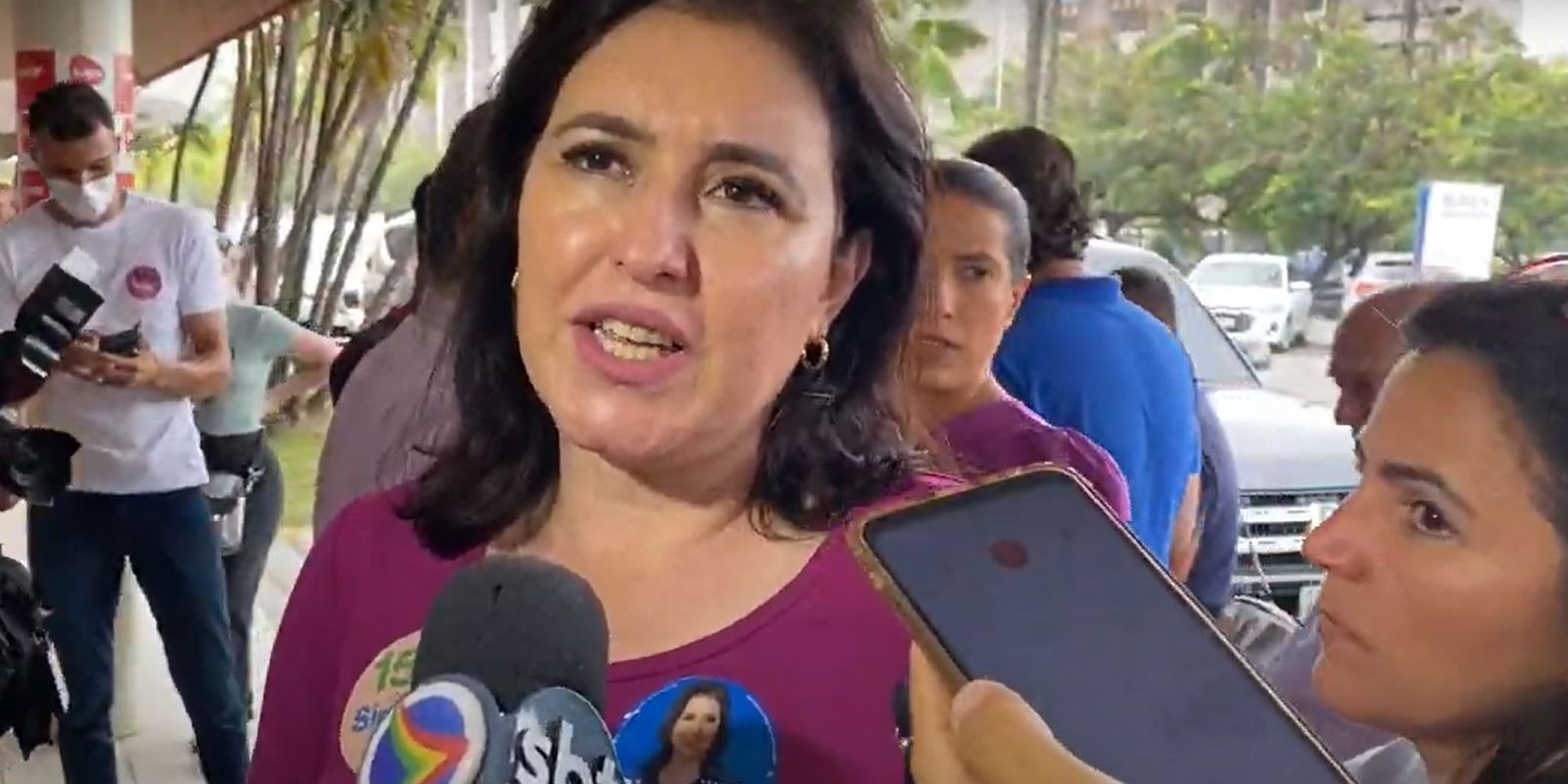During the International Insurance Convention, organized by Fasecolda in Cartagena, the Minister of Transport, Guillermo Francisco Reyes González, referred to the problem of access to Compulsory Traffic Accident Insurance (SOAT) in the country, the Interinstitutional Table to solve the subject and the road safety plans of the Government of President Gustavo Petro Urrego.
Likewise, the head of the portfolio reiterated the importance of the insurance sector for the development of large infrastructure projects in the country.
(This would be the new procedure to get the Soat and the license for motorcycles).
Faced with these problems, such as the one that includes the current low coverage of the Soat due to the increase in the vehicle fleet and the road accident rate in the country, Minister Reyes González presented some proposals to solve this situation.
In the first place, the head of the portfolio spoke of the installation of an Inter-institutional Table, which includes the participation of the Ministries of Health, Finance and Transport, as well as the Superintendencies of Transport and Finance, the Administrator of the Resources of the General System of Social Security in Health and the National Road Safety Agency.
This dialogue and agreement table has managed to advance in proposals that allow finding solutions to these problems in the short, medium and long term.
Mainly, the topics to be discussed in this space are tax evasion, fraud, claims and regulations. Minister Reyes González explained that insurers will also be invited to be part of this table so that they contribute ideas that help more and more Colombians acquire Soat.
“We need to count on you and we need to bet on taking care of life. We need a country committed to saving lives. We are going to force the Colombian to have a SOAT not only to add a cost, but to protect the life, not only of the road driver, but also of the other people who circulate through the lives of the country”, Minister Guillermo Francisco Reyes González explained.
The Minister of Transport, Guillermo Francisco Reyes González.
File, Archive
The senior official stressed that the only way to demand that the SOAT be in force is that it be required for any procedure that is intended to be carried out before the Transit and Transportation offices.
Likewise, he stressed that the SOAT allows the absolute protection of all the people who could be involved in road accidents, whether they are drivers, passengers or bystanders.
“We need to work together to reduce accidents on the roads, to prevent lives from being lost. We must move forward in joint work with the unions, the academy, the industry, the departmental and municipal authorities and, of course, the national government. For this, it is essential to have the Soat, since it protects the victims who are inside and outside the vehicle, as well as the direct relatives of the victims who may die in the accident”, said the Minister of Transport.
(It will be forced to have Soat even if it is ‘by crook’, warns Mintransporte).
Another of the great challenges is that of the 17.3 million vehicles in the country, 8.17 million do not have this insurance in force, which creates a huge challenge for the entire sector. According to figures from the Observatory of the National Road Safety Agency (ANSV), 60% of accidents are motorcyclists.
“Men and women between 20 and 35 years old have a 39% share of fatalities in the country, a fully productive age. In this sense, it is important to bear in mind that road safety must be conceived from different areas of action, the ideal is to prevent accidents, but we must be aware of human error”, highlighted the director of the ASNV, Luis Lota, who added that “The timely care of victims of road accidents is crucial to save lives. There are international studies that show that hospital care in the first 30 minutes after the accident can make the difference between life and death”.
It is important to mention that the Government of President Petro is working on the implementation of the New National Road Safety Plan, focused on having safe vehicles, infrastructure, behaviors and speeds, as well as comprehensive care for victims and compliance with traffic regulations, in order to protect the lives of all citizens on the country’s roads.
Similarly, progress is being made in the new licensing model, with which there will be more suitable drivers to travel through the national territory.
On the other hand, during this space, Minister Reyes González highlighted that infrastructure is a great driver of the sector, since the works carried out by entities such as the National Infrastructure Agency (ANI), Invías or Aerocivil require different types of policies. , with which the projects are safeguarded against any type of risk during their execution and operation.
In this sense, the senior official highlighted the importance of the insurance sector for the development of this type of construction.
Taking into account that one of President Petro’s priorities is to promote the structuring and execution of railway, river and airport projects, the support of this industry is essential to protect the resources of all Colombians.
(Learn how to calculate the real market value your car would have.)
“We did not come to finish or destroy what works well, we came to make a government where there are some fundamental priorities and we understand that infrastructure is the fundamental axis of Colombia’s development. We are going to strengthen multimodal transport, with two highly component components, the railways and rivers. The railway system will be fundamental and we are going to connect the Pacific and the Atlantic”Minister Reyes González added.
For the Government of Life, it is essential to advance in this type of initiative that cares for the integrity of Colombians on the roads, that promotes social justice, economic justice and environmental justice, that result in a Total Peace that positively impacts all the communities.
BRIEFCASE








